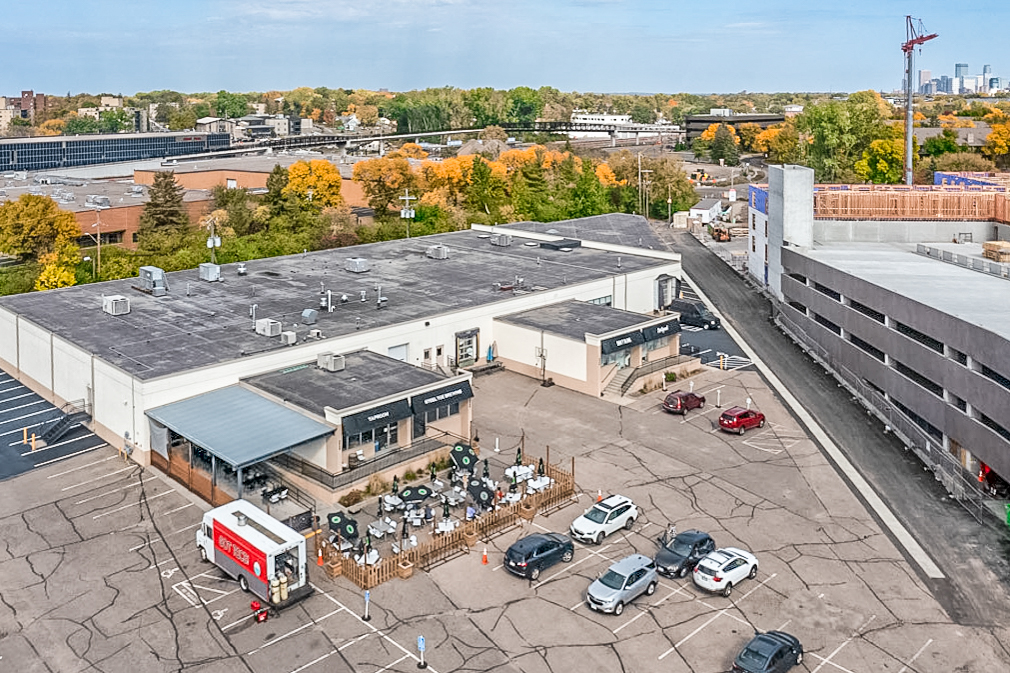What you should know about budgeting for a commercial roof replacement.
Commercial roofs don’t last forever. Replacing the roof on your commercial building is a certainty. Unfortunately, we see far too few building owners and facility managers plan for the expense of a commercial roof replacement.
We take no particular joy in our customers dealing with an unexpected roof replacement. To help ease the pain, we’ve put together some tips to help you plan for the day when you need to write the big check.
Here are 10 tips for starting the budgeting process for a commercial roof replacement:
1. Have your roof inspected by a reputable company that only works on your type of commercial roof.
If you own a building and haven’t done so within the last 12 months, you should schedule an inspection of your roof as soon as possible.
If your roof is in good condition, the inspection will confirm it, and you’ll know the remaining life you might expect from it before a replacement is necessary.
What if you’re considering purchasing a new commercial building?
It’s easy to look at an existing property solely based on the cost per square foot. But that cost can increase significantly if the roof is in disrepair or at the end of its life.
Even if you’ve looked at the roof and the owner assures you that it hasn’t had any issues, that doesn’t mean that it will make it through even one more year.
Before you buy a building, step one is to have the roof inspected by a reputable company that only works on that specific type of commercial roof. A professional roofing inspector knows what to look for and can find hidden issues that could factor into your decision. You can avoid wasting money on unnecessary expenses by getting a roof inspection before you buy a commercial building.
If your roof has issues or has been poorly maintained, this will allow you to negotiate the purchase price to account for future maintenance and replacement costs.
2. Determine how long you plan to remain in your building.
The lifespan of a commercial roof varies, but it can be assumed that roof replacement is inevitable as the building ages. Whether you’re purchasing an existing building or already own your building, think about how long you plan to stay.
If you plan to stay for 3-5 years, and your roof inspection determines that your roof has a ten year remaining life expectancy, there’s no need to consider a replacement in your long-term budget unless you think it will help increase the value of the building.
However, if you expect to occupy or lease your building for ten or more years, you need to start budgeting for a future replacement.
A new commercial roof has a life expectancy of roughly 20 years. A routinely maintained roof often exceeds this lifespan, while a roof that has been neglected will have difficulty hitting the 20 year mark.
3. Examine your options and establish a budget.
Once you’ve established a plan based on the expected timeline for a roof replacement, it’s time to start budgeting.
Your commercial roofing contractor can help you determine the best commercial roofing system once the time comes for replacement. They can then provide you with an estimate for the replacement in today’s dollars.
If you’ve got ten years of life left on your current roof, you’ll need to set aside enough funds on an annual basis to cover the eventual cost. And don’t forget to factor in inflation!
It goes without saying that there are other ways to budget for a capital expenditure like a commercial roof replacement. Now that you’re armed with an estimate, it would be an excellent time to consult with an accountant. They can help you craft a plan that makes the most sense for your particular circumstances. There may also be tax considerations that they can help you navigate.
See Tip #10 below for more budgeting strategies.
4. Incorporate climate considerations into your calculations.
Minnesota has snow, ice, and extreme temperatures that impact your roof, so you may want to consider a more durable roofing system due to problems like freezing, thawing, and roof expansion.
Your roofing contractor will make recommendations based not only on general climate conditions but also on building positioning, seasonal shading, and other environmental factors that will contribute to the roof’s longevity.
5. Estimate cost based on your situation.
Now is the time to think about upgrades that involve your roof.
Do you need to change the way the roof is accessed? Are you considering replacing the rooftop HVAC system or updating ventilation systems? Do you have skylights on your wish list? Do you currently have solar on your roof?
Any of these can impact the cost of a roof replacement and need to be discussed when you are getting a commercial roof quote. If you already have a quote in hand and need to make changes, contact your commercial roofing contractor to consult on the changes and change the bid if necessary.
6. Know the history of your commercial roof.
Here are a few pieces of information that will help a commercial roof professional prior to inspecting your roof:
- How old is your roof?
- What is the rough square footage?
- What type of roof do you currently have?
- What is the maintenance history?
- Any other information about your roof that you think may be a factor.
7. Consider other contributing factors.
Like the insulation codes mentioned above, the more you know, the better prepared you are to get an accurate quote for a commercial roof replacement. Your commercial roofing contractor will know of any codes or restrictions in your city.
If you plan to add any equipment to your roof, be sure to discuss it with your roofing contractor. If your roof needs to be reinforced or modified to accommodate the equipment, you’ll want to schedule the work to be done before or at the same time as the replacement.
8. Avoid emergency repairs with an annual inspection.
An annual inspection will help you avoid emergency repairs because inspection means detection. When issues are detected early, they can be easily repaired before extensive damage occurs.
Emergency repairs can eat up your budget quickly because they are more costly than routine maintenance. Not only will your roof require repair, but there is usually damage hiding under the surface, causing unforeseen damage and expense.
9. Get on a maintenance plan.
Regular maintenance can extend the life of your roof by several years and save you money on emergency repairs. Repairs are often 2.5 times more expensive than routine preventative maintenance.
Think of it this way. If you don’t go to the dentist for 15 years, you’re going to pay more when you finally get in the chair. However, if you get your teeth cleaned and checked every six months and take care of issues while they are minor, chances are you will avoid costly repairs, like root canals!
Most commercial roof maintenance contracts include free annual inspections.
10. Contact a professional commercial roofing contractor.
Your commercial roof is one of the most critical components of your building. It protects the contents of your building from rain, snow, and other weather elements. But it won’t last forever. Winter is a great time to connect with a commercial roofing contractor to help budget for your eventual roof replacement.
We hope this blog post has given you some valuable tips on budgeting for the expense of a commercial roof replacement. Mint Roofing has served the Minneapolis/St. Paul and the surrounding market since 1950. We grew up and live in Minnesota. Put our experience to work for you!
When you’re ready for the next step, we hope you’ll give us a call or send an email – we’ll help get the ball rolling!
FAQs
Q: Why is it important to have my commercial roof inspected before purchasing a building?
A: A roof inspection before buying a commercial building is crucial to assess its condition and potential future expenses. Even if the owner claims no issues, a professional inspector can uncover hidden problems that might impact your budget.
Q: How long can I expect my commercial roof to last, and when should I start budgeting for a replacement?
A: The lifespan of a commercial roof varies, but it’s essential to consider your long-term plans. If you plan to stay in your building for a decade or more, you should start budgeting for a future roof replacement, as most commercial roofs last around 20 years.
Q: How should I determine my budget for a commercial roof replacement?
A: Start by consulting with a commercial roofing contractor for an estimate in today’s dollars. Consider setting aside funds annually based on the estimated replacement cost, factoring in inflation. An accountant can help create a customized budgeting plan based on your situation.
Q: Should I consider climate when budgeting for a commercial roof replacement?
A: Yes, climate considerations are essential. Extreme weather conditions, like those in Minnesota, can impact your roof’s longevity. Your roofing contractor can recommend more durable roofing systems to withstand freezing, thawing, and other environmental factors.
Q: What should I consider when estimating the cost of a commercial roof replacement?
A: When estimating costs, think about any roof-related upgrades or changes you might need, such as roof access, HVAC system replacement, ventilation updates, skylights, or solar panels. Discuss these with your roofing contractor to ensure an accurate quote.


